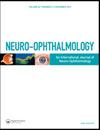Zadig, Mentor and William F. Hoyt, MD
IF 0.8
Q4 CLINICAL NEUROLOGY
引用次数: 0
Abstract
Inspired by the French translation of “One thousand and one nights”, Voltaire (François Marie Arouet, 1694–1778), wrote a series of “philosophical tales,” sometimes just apologies, with a concluding morale. One of his characters, Zadig, despite being young andwealthy, knew how to control his passions. He never bragged and did not always want to be right. He understood the weaknesses of his fellow men and was generous, even to the ungrateful. Aggravated by the injustice of men and disenchanted with life by sundry domestic misadventures, Zadig withdrew from the turmoil of Babylon to a secluded retreat on the banks of the Euphrates, where he beguiled his solitude by the study of nature. The manifold wonders of the world of life had a particular attraction for the lonely student; incessant and patient observation of the plants and animals about him sharpened his naturally good powers of observation and of reasoning; until, at length, he acquired a sagacity which enabled him to perceive endless minute differences among objects which, to the untutored eye, appeared absolutely alike. In chapter III “The dog and the horse”, Zadig’s powers of observation were highlighted. ... by observing subtle clues unnoticed to others, left on the soil by the passage of the King’s horse and the Queen’s bitch, he was able to describe both animals in full detail although he never actually saw them. «One day, walking near a little wood, he saw, hastening that way, one of the Queen’s chief eunuchs, followed by a troop of officials, who appeared to be in the greatest anxiety, running hither and thither like men distraught, in search of some lost treasure. “Young man,” cried the eunuch, “have you seen the Queen’s dog?” Zadig answered modestly, “A bitch, I think, not a dog.” “Quite right,” replied the eunuch; and Zadig continued, “A very small spaniel who has lately had puppies; she limps with the left foreleg, and has very long ears.” “Ah! you have seen her then,” said the breathless eunuch. “No,” answered Zadig, “I have not seen her; and I really was not aware that theQueen possessed a spaniel.” By an odd coincidence, at the very same time, the handsomest horse in the King’s stables broke away from his groom in the Babylonian plain. The grand huntsman and all his staff were seeking the horse with as much anxiety as the eunuch and his people the spaniel; and the grand huntsman asked Zadig if he had not seen the King’s horse go that way. “A first-rate galloper, small-hoofed, five feet high; tail three feet and a half long; cheek pieces of the bit of twenty-three carat gold; shoes silver?” said Zadig. “Which way did he go? Where is he?” cried the grand huntsman. “I have not seen anything of the horse, and I never heard of him before,” replied Zadig. The grand huntsman and the chief eunuch were sure that Zadig had stolen both the King’s horse and the Queen’s spaniel, so they hauled him before the High Court of Desterham, which at once condemned him to the knout, and transportation for life to Siberia. But the sentence was hardly pronounced when the lost horse and spaniel were found. So the judges were under the painful necessity of reconsidering their decision: but they fined Zadig four hundred ounces of gold for saying he had seen that which he had not seen. The first thing was to pay the fine; afterwards Zadig was permitted to open his defence to the court, which he did in the following terms: “Stars of justice, abysses of knowledge, mirrors of truth, whose gravity is as that of lead, whose inflexibility is as that of iron, who rival the diamond in clearness, and possess no little affinity with gold; since I am permitted to address your august assembly, I swear by Ormuzd that I have never seen the respectable lady dog of the Queen, nor beheld the sacrosanct horse of the King of Kings. “This is what happened. I was taking a walk towards the little wood near which I subsequently had the honour to meet the venerable chief eunuch and the most illustrious grand huntsman. I noticed the track of an animal in the sand, and it was easy NEURO-OPHTHALMOLOGY 2019, VOL. 43, NO. 3, 136–138 https://doi.org/10.1080/01658107.2019.1610294Zadig, Mentor和William F. Hoyt, MD
受《一千零一夜》法语译本的启发,伏尔泰(弗朗索瓦·玛丽·阿鲁埃,1694-1778)写了一系列“哲学故事”,有时只是道歉,结尾是鼓舞人心的。他的角色之一,扎迪格,尽管年轻富有,却知道如何控制自己的激情。他从不自夸,也不总是希望自己是对的。他了解他的同胞的弱点,甚至对那些忘恩负义的人也很慷慨。扎迪格被人的不公正所激怒,又被各种各样的家庭不幸所迷惑,他从混乱的巴比伦撤退到幼发拉底河岸边的一个僻静的地方,在那里他以研究自然来打发自己的孤独。生活世界的各种奇观对这个孤独的学生有一种特殊的吸引力;不断地、耐心地观察周围的动植物,锻炼了他天生良好的观察和推理能力;直到最后,他获得了一种智慧,使他能够察觉到物体之间无穷无尽的细微差别,而在没有受过训练的人看来,这些物体是完全相似的。在第三章“狗和马”中,扎迪格的观察力得到了强调. ...通过观察国王的马和王后的母狗经过时留在土壤上的细微线索,他能够详细地描述这两只动物,尽管他从未真正看到过它们。“有一天,他走到一个小树林附近,看见王后的一个太监,后面跟着一群官员,他们似乎非常焦虑,跑来跑去,像个心烦意乱的人,在寻找一些丢失的宝藏。“年轻人,”太监叫道,“你看见王后的狗了吗?”扎迪格谦虚地回答:“我想是母狗,不是狗。太监回答说:“不错。”扎迪格接着说:“一只很小的西班牙猎犬,最近刚生了小狗;她左前腿跛行,耳朵很长。”“啊!“那你一定见过她。”太监气喘吁吁地说。“没有,”扎迪格回答说,“我没有见过她;我真的不知道王后有一只西班牙猎犬。”巧合的是,就在同一时间,在巴比伦平原上,国王马厩里最漂亮的一匹马从他的马夫身上跑了出来。大猎人和他所有的随从都在焦急地寻找那匹马,就像太监和他的部下寻找那条猎犬一样;大猎人问扎迪格是否看见国王的马朝那条路走去。“第一流的快马,小蹄子,五英尺高;尾巴有三英尺半长;面颊上的那块二十三克拉的黄金;鞋子银?扎迪说。“他往哪条路去了?”他在哪里?大猎人叫道。“我没见过这匹马,也从没听说过它。”扎迪格回答。大猎人和太监确信扎迪格偷了国王的马和王后的猎犬,于是他们把他拖到德斯特罕高等法院,法院立即判他入狱,并将他终身流放到西伯利亚。但判决还没宣判,那匹走失的马和那条西班牙猎犬就被找到了。因此,法官们不得不痛苦地重新考虑他们的决定,但他们罚了扎迪四百盎司黄金,因为他说他看到了他没有看到的东西。第一件事是交罚款;之后,扎迪格被允许向法庭进行辩护,他是这样做的:“正义之星,知识的深渊,真理的镜子,它的重力就像铅,它的坚定性就像铁,它的清晰度与钻石相媲美,与黄金有很大的亲和力;既然我被允许在庄严的大会上发言,我以奥穆兹德的名义发誓,我从来没有见过女王那只可敬的狗,也没有见过万王之王那匹神圣的马。“事情是这样的。我正朝那片小树林走去,后来我很荣幸地在附近遇见了可敬的太监和最杰出的大猎人。我注意到沙滩上有一只动物的足迹,这是很容易的神经眼科学,2019年第43卷,第1期。3,136 - 138 https://doi.org/10.1080/01658107.2019.1610294
本文章由计算机程序翻译,如有差异,请以英文原文为准。
求助全文
约1分钟内获得全文
求助全文
来源期刊

Neuro-Ophthalmology
医学-临床神经学
CiteScore
1.80
自引率
0.00%
发文量
51
审稿时长
>12 weeks
期刊介绍:
Neuro-Ophthalmology publishes original papers on diagnostic methods in neuro-ophthalmology such as perimetry, neuro-imaging and electro-physiology; on the visual system such as the retina, ocular motor system and the pupil; on neuro-ophthalmic aspects of the orbit; and on related fields such as migraine and ocular manifestations of neurological diseases.
 求助内容:
求助内容: 应助结果提醒方式:
应助结果提醒方式:


